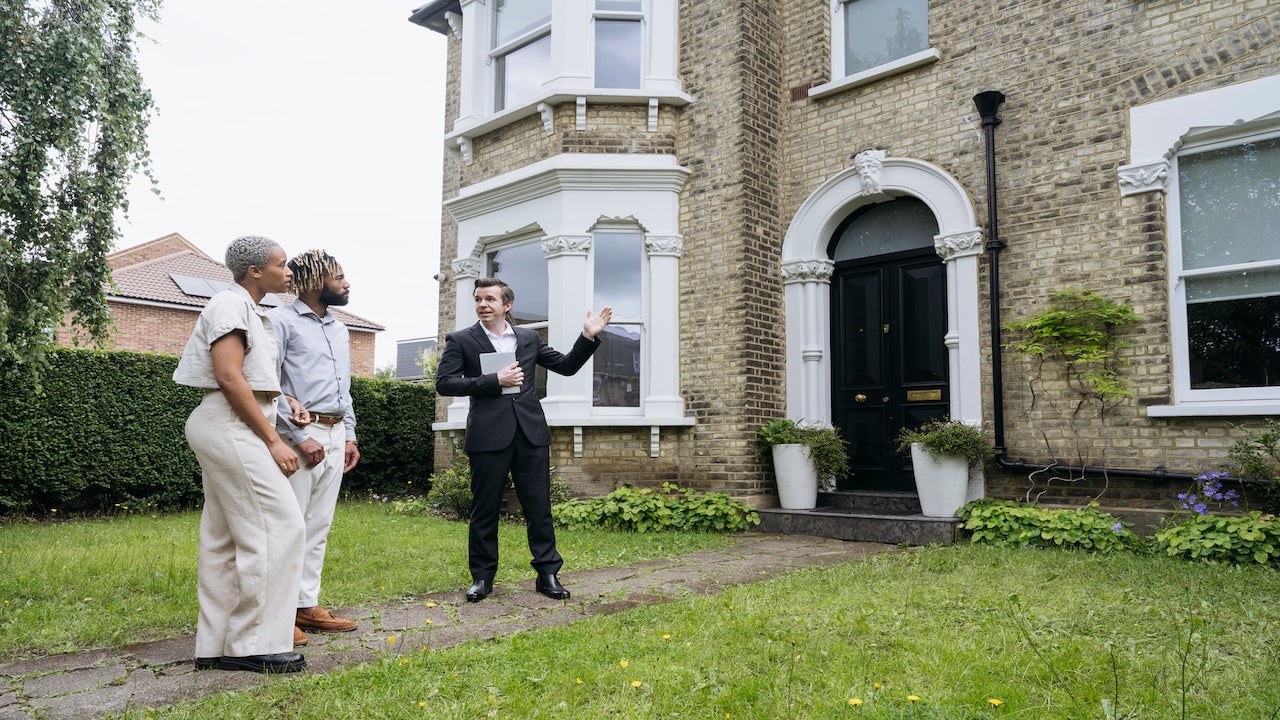Can you buy a home on disability?




Key takeaways
- If you’re living with a disability, you can list your Social Security Disability Insurance (SSDI) or Supplemental Security Insurance (SSI) as income on your mortgage applications.
- This makes it easier to meet a lender’s income requirements and qualify for a mortgage — even if you aren’t receiving employment income.
- To reduce the upfront costs of buying a home, you can also explore down payment assistance programs in your area.
If you’re eager to become a homeowner but concerned that you won’t qualify because you’re on disability, you may have more options than you realize. In fact, there are special housing programs, including loans and grants, that are designed to help people with disabilities achieve the goal of homeownership. Keep reading to learn more about buying a home on disability, including how to find housing grants and apply for a mortgage.
How to buy a house on disability benefits
Buying a home requires money, obviously. But income isn’t restricted to just employment salary. If you receive Social Security Disability Insurance (SSDI) or Supplemental Security Insurance (SSI) income, you can claim it as income on a home-loan application, just as if you were buying a home using any other type of earnings.
Before you begin house-hunting, it’s a good idea to get preapproved for a mortgage. This gives all buyers, regardless of income type, a good understanding of how much a lender is willing to loan to them — and, therefore, how much house they can afford. You might also ask the lender if they offer loan programs for borrowers with disabilities.
Just like anyone else, you’ll also need to fulfill the other criteria for getting a mortgage. For example, your credit score and debt-to-income ratio must meet the requirements for your specific lender and mortgage type. You’ll also need to have enough money set aside for a down payment, unless you’re shopping exclusively for a zero-down mortgage, and closing costs as well. This money should be in addition to anything you might have in a rainy-day or retirement-savings fund.
Keep in mind: Rarely will you find a home already adapted for your disability, and making changes to suit your needs can be expensive. When shopping for a house, keep in mind the changes that will be required, get estimates if you can and make sure you can fund them. The fewer alterations needed, the better for your bank account.
Housing grants for people with disabilities
If you’re struggling to save enough money to buy a house while on disability, there are some grant programs that can help. Unlike loans, grants are awarded based on need or merit and don’t need to be paid back, which makes them highly desirable — as long as you meet their eligibility requirements.
For example, many states, counties and cities have down payment assistance programs that offer grants and other types of help for people with minimal income, including those on disability. Remember that, even if you get a grant for a down payment, you will still need enough income to make your monthly mortgage, tax and insurance payments. You should also have money set aside for emergency repairs, if (and when) they arise.
If you’re a military veteran living with a disability, the U.S. Department of Veterans Affairs offers two kinds of disability housing grants to those who qualify based on service-connected disabilities:
- Specially Adapted Housing (SAH) grant: Provides up to $121,812 (for the fiscal year 2025) in grant funding to purchase, build or renovate a home.
- Special Housing Adaptation (SHA) grant: Provides up to $24,405 in grant funding to purchase, build or renovate a home.
Each grant has its own set of qualifications, based on type of disability.
Learn more: First-time homebuyer programs by state
Qualifying for a home loan
Before applying for a particular type of mortgage, you should know each one’s criteria to qualify. Here’s what’s required with some of the most popular home-loan programs.
Fannie Mae and Freddie Mac loans
Fannie Mae’s HomeReady mortgage and Freddie Mac’s Home Possible program are loans for low-income buyers that require as little as 3 percent down. Both are flexible in terms of income sources and co-buyers, which makes them appealing for people on disability. To qualify for either of these loans, your income needs to be less than 80 percent of your area’s median income. There may be minimum credit scores and other requirements as well.
FHA loans
Insured by the Federal Housing Administration, FHA loans are another popular option for people with disabilities, as well as those with minimal income or lower credit scores. Your required down payment with an FHA loan depends on your credit score: With a score of 500 to 579 you’d need a 10 percent down payment, and with a score of 580 or higher you’d need to put down just 3.5 percent.
VA loans
Military veterans and their families, living with disabilities or not, may be eligible to take out a VA loan to purchase a home. VA mortgages are different from the VA’s disability housing grants. They typically have no credit score requirement (though individual lenders still will) or down payment requirement.
USDA loans
If you live in a rural area, you may qualify for a home loan from the U.S. Department of Agriculture. As with VA loans, USDA loans don’t require a down payment. They do, however, require the home to be within an eligible region, and your income must be below certain limits for your area. You can learn more about these restrictions on the USDA website. While there’s no specific credit score minimum required by the USDA, lenders typically want to see a score above 640.
Nonprofit organizations
Some nonprofit groups, such as Habitat for Humanity, may also be able to help people living with disabilities become homeowners. Eligibility requirements vary by program. These organizations may be willing to perform or fund necessary alterations, as well, so check into it before buying so you know what your cash needs will be.
Know your housing and loan rights
The Fair Housing Act, enacted in 1968, legally prevents home sellers, landlords and real estate professionals from discriminating based on a wide variety of protected characteristics, including disability. Sadly, though, housing discrimination remains an issue in the U.S., which can make it even more difficult for people with disabilities to achieve homeownership. Keep in mind while house-hunting and applying for loans that agents and lenders may ask questions about your finances, which may include disability income — but they are not permitted to ask about your disability.
If you feel you have experienced discrimination while trying to buy a home, you can file a complaint with the Department of Housing and Urban Development’s (HUD) Office of Fair Housing and Equal Opportunity.
Next steps
A physical disability may make your house hunt more difficult. When you’re ready to find a home that suits your needs, it’s a good idea to hire a local real estate agent to help with the process. An experienced agent knows the market well, and will be able to find properties within your budget, negotiate with sellers, help close the sale and more. They may also be able to tell you about specific assistance programs for low-income buyers or buyers living with disabilities.
It’s important to work with someone you trust, especially if there are aspects of the homebuying process you will not be able to participate in personally. A Realtor with At Home With Diversity certification (you might see the initials AHWD after their name) has completed specific training in fair housing issues and may be particularly well-equipped to help clients living with disabilities.
FAQs
Why we ask for feedback Your feedback helps us improve our content and services. It takes less than a minute to complete.
Your responses are anonymous and will only be used for improving our website.




